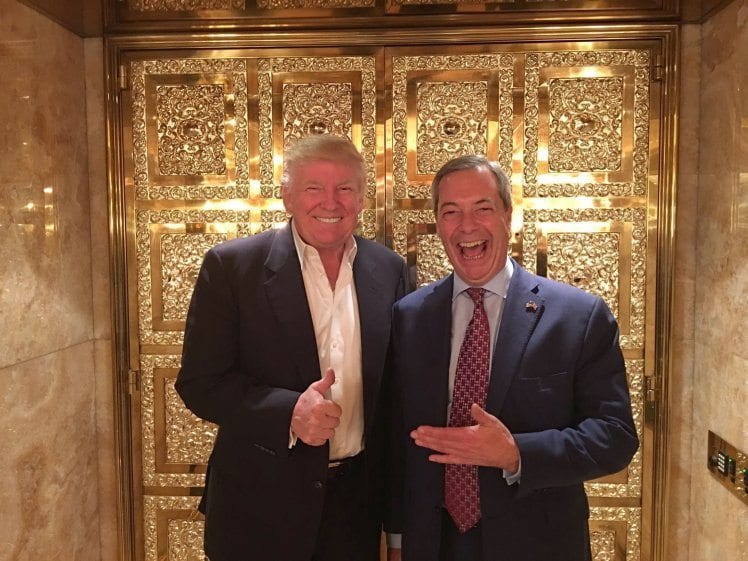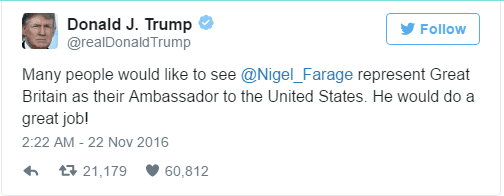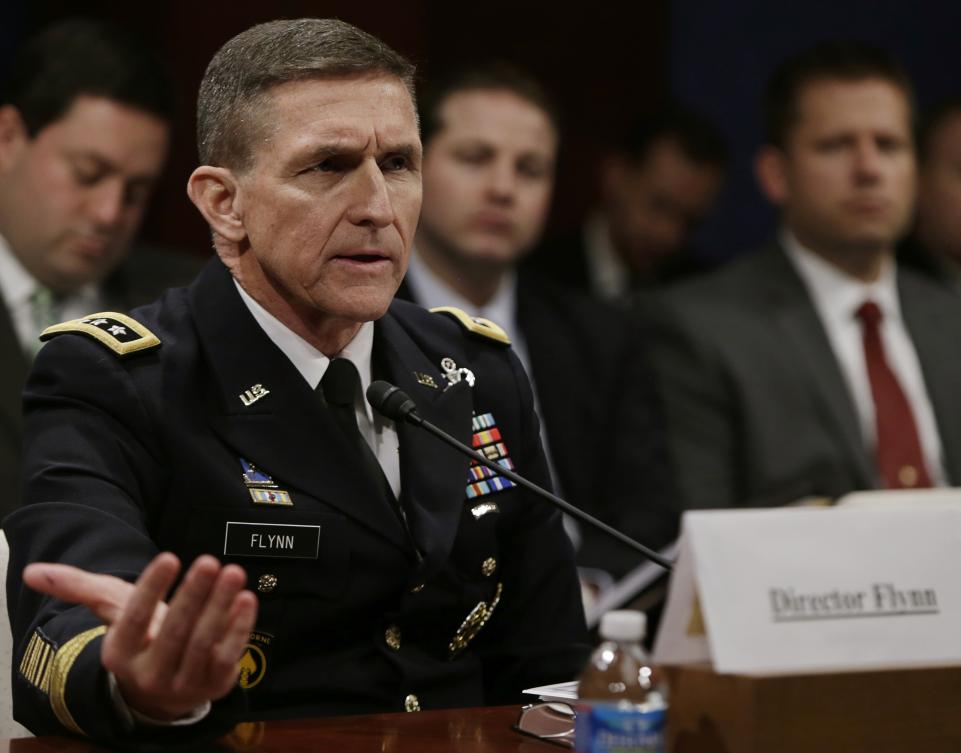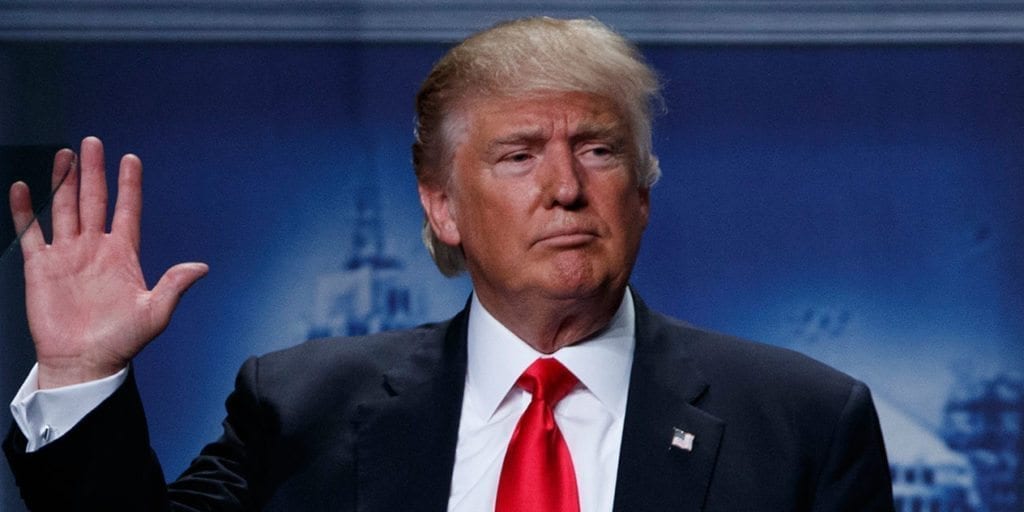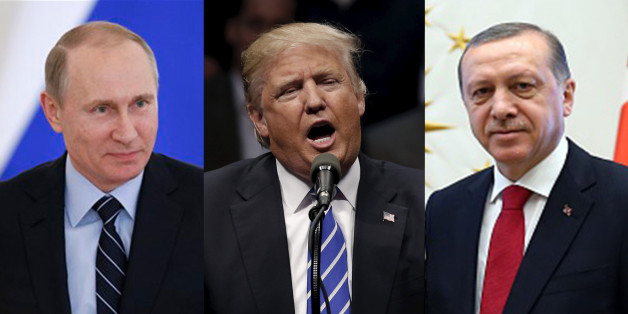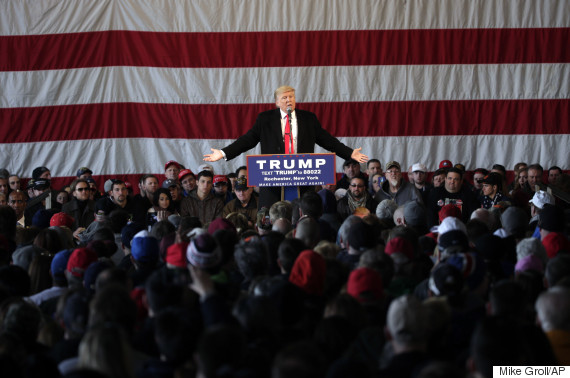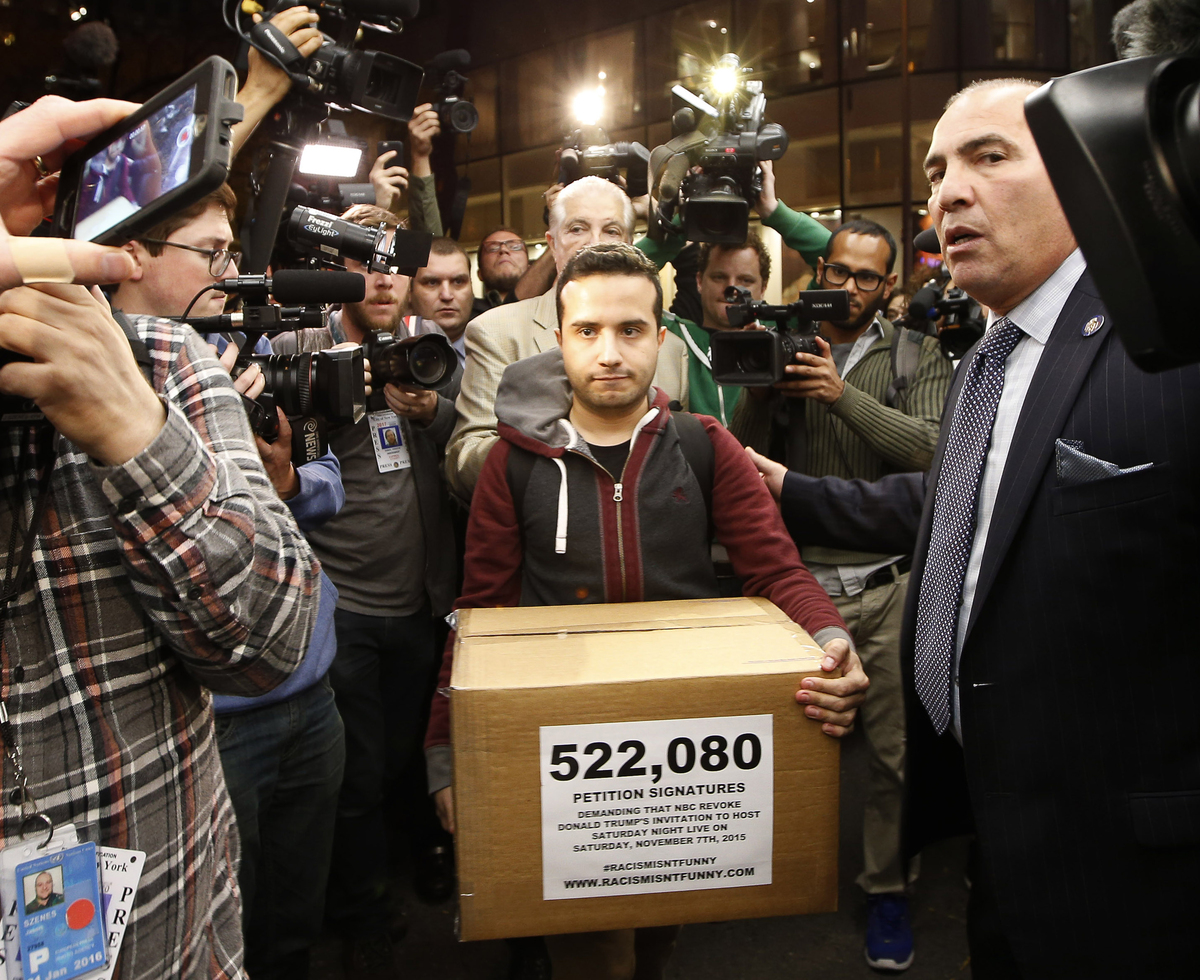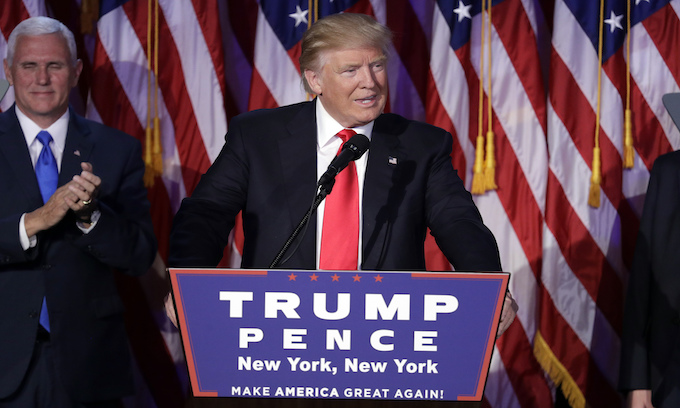
President-elect Donald Trump gives his acceptance speech during his election night rally, Wednesday, Nov. 9, 2016, in New York. (AP Photo/John Locher)
NEW YORK — Donald Trump will become the 45th president of the United States and its commander-in-chief, a stunning achievement for a complete novice to governing whose campaign was written off by the nation’s political class.
He defeated Hillary Clinton, the first female presidential nominee of a major party and a former first lady, senator from New York and secretary of state. Shortly after Trump’s victory was called, Clinton called him to concede and congratulate Trump.
The election of Trump may be the greatest political surprise of the modern era, after the Republican nominee trailed national and state-by-state polls for over 100 consecutive days. The New York real estate tycoon and reality TV star– with no experience in public service– has proposed a ban on all Muslims from entering the US homeland, a wall on the nation’s southern border with Mexico, a trade war with China, a softening with Russia and a ruthless war against Islamists across the Middle East.
His victory was a shocking rebuke to the outgoing president, Barack Obama, who warned that Trump is temperamentally unfit for the presidency and an existential threat to the very foundations of the world’s oldest democratic republic.
Stock futures plummeted over 800 points as his victory became apparent. If that drop holds Wednesday morning, it will represent a greater market crash than the world has seen since the Great Recession began in the fall of 2008.
Clinton severely underperformed in several states that have reliably voted Democratic for over twenty years, and the protectionist movement that fueled Trump’s rise delivered upset victories in the country’s Midwest, a suffering manufacturing region where his pitch to white, working class voters turned the race in his favor.
Trump won the White House despite 61% of Americans viewing him negatively, according to exit polls. He swept virtually every competitive state in the race: Florida, North Carolina, Ohio, Wisconsin, Iowa and Pennsylvania.
“We will get along with all other nation willing to get along with us,” Trump said in his victory speech in New York.
“The forgotten men and women of our country will be forgotten no longer,” said the president-elect. “We will deal fairly with everyone — all people, and all other nations.”
Trump and Clinton largely tapped into coalitions familiar to Republicans and Democrats: White voters mostly voted for him, and a coalition of minority groups went with her. But Trump’s voters turned out in massive numbers– 70% of the electorate identified as white on Tuesday. Clinton’s did not in the numbers she had expected, or needed to secure victory.
The two candidates offered the American public an unusually stark choice– not simply one between a Republican and a Democrat, but one between a man who is fundamentally an outsider, without experience in politics, and a woman who has spent her entire adult life in government.
Trump, a billionaire who built a career in New York real estate, came to represent among his supporters an opportunity to shatter Washington into pieces. To his detractors, he was an illiberal demagogue, a sexist and a racist, who has exploited the country’s divisions for political gain.
Throughout his unlikely campaign, Trump lobbed unprecedented attacks not just at his political opponents, but at veterans, women who accused him of sexual assault, immigrants, a Gold Star family and those who identify as Muslim. Announcing his presidential campaign, he accused Mexico of sending criminals and rapists over the border.
Clinton tried to cast herself as a pragmatic centrist: An experienced former first lady, senator and secretary of state. But her opponents consider her the consummate politician, willing to say or do anything to retain political power, corrupted by wealth and influence.
Her decision to operate a private e-mail server while at the State Department marked the launch of her campaign and dogged her throughout, despite the Federal Bureau of Investigation clearing her of any wrongdoing after a yearlong investigation into her practices.
Exit polls showed voters dissatisfied with both candidates, hopeful for a change and seeking strong leadership. But more than anything else, Americans expressed glee that this presidential election is finally over.
“I have joined the political arena so that the powerful can no longer beat up on people that cannot defend themselves,” Trump told the Republican National Convention over the summer, accepting the nomination. “I alone can fix it. I have seen firsthand how the system is rigged against our citizens.”
“I have a message to every last person threatening the peace on our streets,” he continued. “When I take the oath of office next year, I will restore law and order.”
(c) All rights reserved The Jerusalem Post 1995 – 2016 Provided by SyndiGate Media Inc. (Syndigate.info).
—-
This content is published through a licensing agreement with Acquire Media using its NewsEdge technology.

